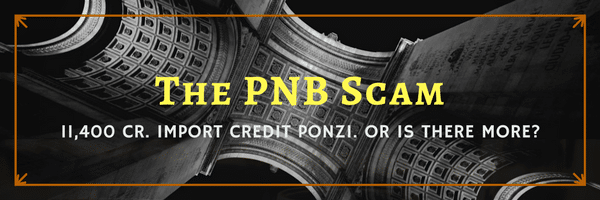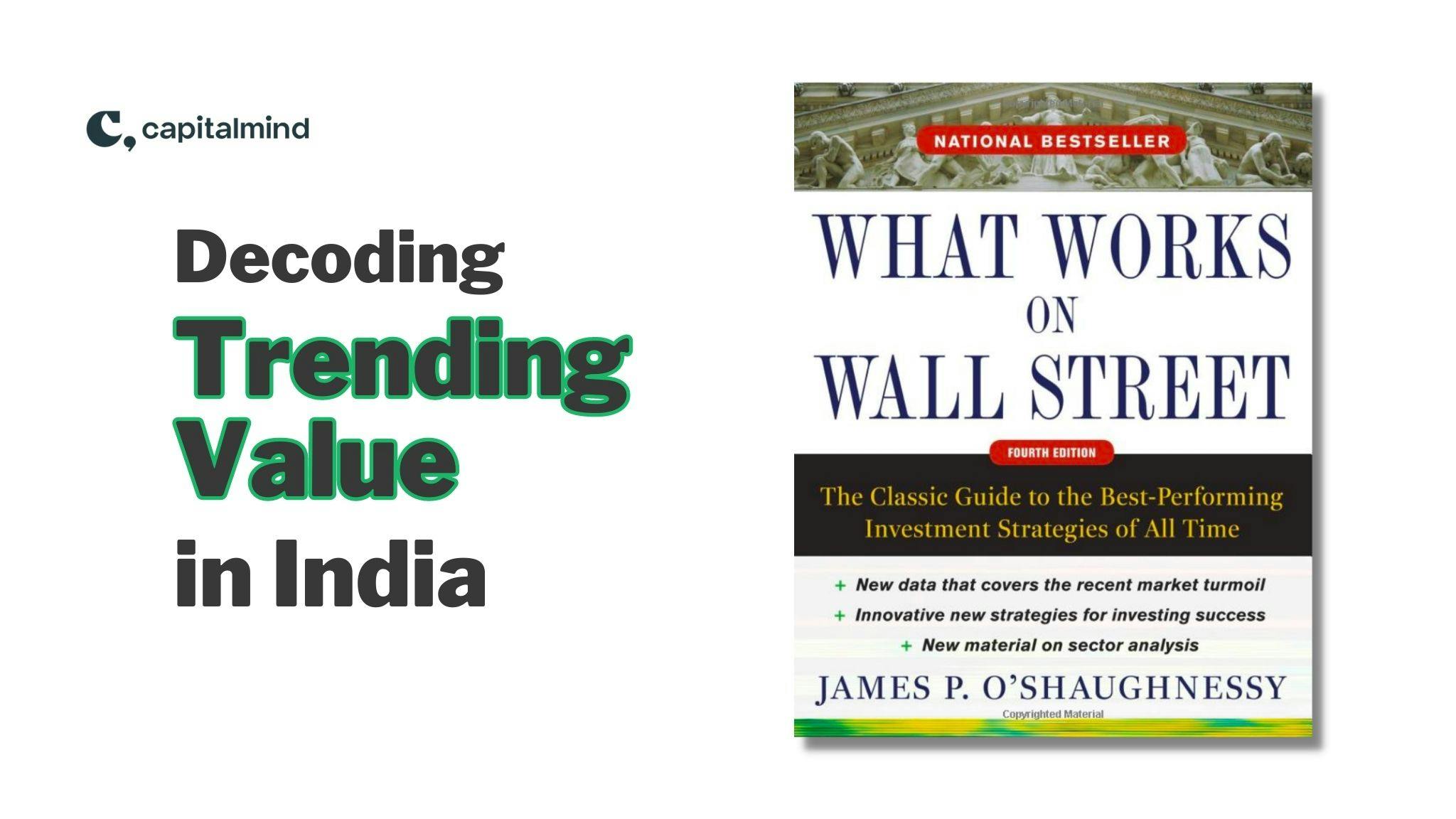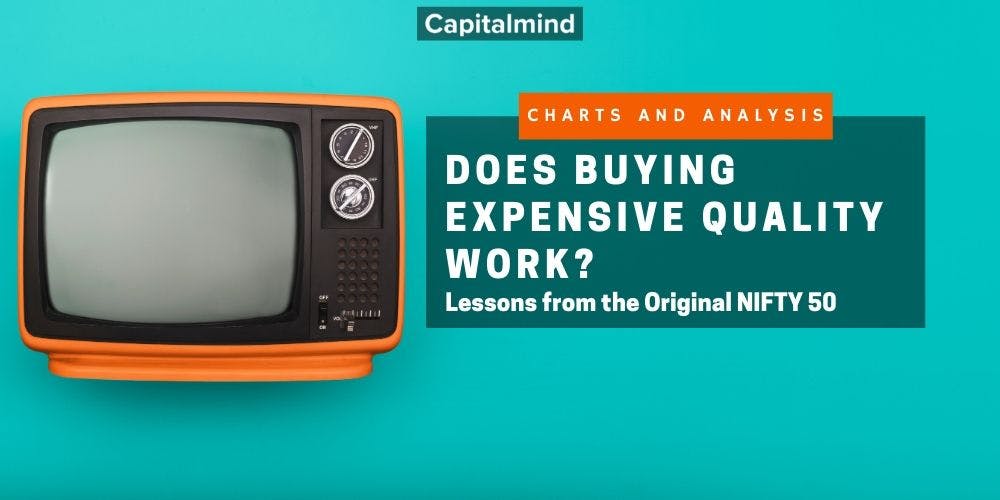(category)Commentary
Ten Money messages I would share with my younger selfTen Money messages I would share with my younger self
As unintuitive as it'll sound coming from an investment manager, you probably don't need to think about investing as much as you think you do—that and nine other money messages I'd share with my younger self.
Anoop Vijaykumar•

This post wasn't meant to be a post, but just a few things I scribbled for myself as things about money I'd tell my younger self. The list grew, and so here it is.
The ten money messages I’d want my younger self to absorb:
(1) You don’t need to think about investing as much as you think you do
“The investor who starts a SIP at 25 ends up with double the corpus of the one who starts ten years later, even with a bigger SIP! Behold the magic of compounding!”
“Do you realise how much healthcare will cost when you’re 60?”
“This Technology-Biotech-AI NFO closes tomorrow! Invest today!”
The Investment Industry wants you to think there’s a train, and it is leaving without you.
The takeaway from most investment-related messaging, for most folks busy with their already full work schedules, is that they are not doing “enough” with their money. They'll have you believe you must be on top of every rupee, directing it to the best investment options. Any delays mean you are compromising your financial future. The guilt of not doing enough investing is almost as ubiquitous as mom guilt, what working mothers are constantly told they have to bear.
Because FUD (Fear, Uncertainty and Doubt) is an influential sales tool for most things, including investment products.
Relax. Investing is not an overnight miracle pill weight-loss transformation but a lifelong habit; give it time. You are better off thinking more about many things than where to invest: your family, health, and increasing earning power.
(2) Investing won’t make you wealthy; your earnings will
As a newly minted employee, you heard what your manager's manager's boss earns, and you refused to believe someone could make that much. That number sounds inaccessible. Over time, you will not even realise as you pass that mark and then some. A simple CAGR calculation of now and then will prove your earnings growth rate outperformed your portfolio and probably most holdings in your portfolio.
Taking a challenging work assignment and succeeding will significantly impact future opportunities and, therefore, more wealth than finding the “best” investment vehicle today.
The highest probability 100+ bagger you can own is your earning capability. You can maximise your earnings by moving countries and industries, becoming an entrepreneur, upskilling formally or informally, or even being good where you are.
Getting good at something valuable is your best shot at maximising future net worth.
Most people overestimate their investments’ future growth rate and underestimate their earnings’ future growth rate.
(3) Let’s face it; there is no “number”
We’ve been told Step 1 of being a responsible adult is building a financial plan that lays out all the big things you may want and need in your life and putting a number against them. Then, to find out that to meet that number, the right time to start a SIP was about when you were conceived.
I find the whole “x will cost XX in 15 years” type of thinking stressful. Fifteen years of any compounding will result in a daunting number with respect to today’s earnings. I suggest turning that thought around. Something will only cost XX if enough people can afford it. Unless you predict your earnings capability will be inferior to your peers, you should be able to afford everything you do today and then some.
Of course, being good at managing your expectations for the future helps.
(4) Just care a little about beating inflation
Inflation is not this evil thing eroding our wealth. It is a natural side-effect of a normal, growing economy. As long as you are not on a fixed income, you don’t need to be stressing about what a loaf of bread will cost ten years from now.
You should have your surplus working to at least match inflation post-taxes. And equities are the most accessible way of matching and even beating inflation by a distance. Why? Because if inflation means rising prices, it follows those will reflect in the prices of goods and services companies make, inflating their earnings at least in line with inflation.
And you don’t need Buffett-like ability to find the “best” companies. Just buying the index checks this box. How to invest a lumpsum amount? [Podcast]
(5) Spreadsheets don’t work as advertised with important decisions
A Buy versus Rent spreadsheet will not decide one of your life’s most significant money decisions. A comparison of mileage and running costs will not determine your choice of vehicle. The same goes for important decisions like where to live, who to marry, whether to have children, etc. There is no objective way to input how something makes you feel into a cell. This is hard to process for those who pride themselves on their ability to make objective decisions.
A clear sign that a decision has too much Excel but too little thinking is when you’ve plugged in everything you could think of and are far from convinced about the answer. Sometimes, it means something really important is not on the sheet. Mostly, it means your emotions have already made up your mind.
You learn with time to trust your gut on some of the more important things. And that's OK.
(6) Know your money personality
Growing up in our household, money was like the sun. You always felt its presence or absence, but you never looked directly at it. So, money or any concerns about money were never discussed.
Maybe your parents were overly careful with money, and you resented that. Or you experienced traumatic shortages from a business that went bad, and so you are a compulsive saver who cannot spend. Or maybe you went the other way and tend to spend big instead. I have met very few people who don't carry baggage about money from their upbringing.
In his book “Happy Money”, Ken Honda talks about the eight money personalities.
Knowing you and your spouse’s core attitudes to money is valuable. Doesn’t mean you have to fight it, but helps to know which side your margin for error lies.
The compulsive spender needs a way to add a delay to big-ticket purchases, like enforcing a 48-hour cool-off period. The compulsive saver must be reminded of the value of things and experiences to unclench. Knowing where your tendencies lie helps you plan to mitigate their worst.
The most financially successful people recognise the importance of money and give it the consideration it deserves, but not more.
(7) Recognise if you have a SCALE problem
One consequence of actively avoiding thinking about money for most of your life is that it's a struggle to make decisions involving substantial sums of money.
Starting a new SIP? Let’s do 10k / month since that’s the ever-present round number. Never mind that it's now just 2% of your salary, and this effort won't move the needle.
So the “unactioned" money keeps getting bigger in the scheme of things, and the bigger it gets, the scarier it becomes to decide about. Procrastinating about it becomes easier, and it stays.
This is one reason why Real Estate investments are easier because that is one area where large ticket decisions are expected and do not seem to faze people.
If you know you struggle with scale, becoming aware of it can help so you can make it easier by breaking it down into smaller chunks or, better yet, have someone else do it.
(8) Avoid borrowed lenses to view the world
Let’s say you decide to buy a new car. If you’re an avid road tripper and a team-BHP regular, your process and outcome will look a certain way. Different from if you think of a car as a utility to get from Point A to B.
The problem happens when you recruit your petrolhead friend to decide for you. His lens of looking for the most drivable car might prioritise a car you don’t wholly appreciate but end up unwillingly spending more time and money caring for and servicing.
A lot of investment decisions get made that way. The active investor who subscribes to three different research services and reads lots of reports before putting a chunk of her net worth into a stock. She recommends it to a friend who would never open a research report except by mistake. The friend buys the stock but neglects to check again even as the actively engaged investor has moved on 18 months later as the company’s prospects changed.
Replace stock with Active mutual fund, PMS, or AIF; the idea still holds good.
There are investors closely tracking the holdings of their investment vehicles and those who would instead do anything but. Who has better investment outcomes is debatable.
When the hands-off investor temporarily convinces themselves they are interested in making lots of decisions, undesirable things happen.
Most people are better off with the dependable, low-frills car over the more exciting, higher-maintenance car because they only need to get from A to B. The same applies to investing.
(9) Back-seat driving is rarely worth the time
The economics of international trade between countries utilises a concept called ‘comparative advantage’ when deciding what to manufacture itself versus buy from another country. So, suppose a country needs commercial aircraft and baby diapers, and it makes aircraft more efficiently than other countries. Economically speaking, it will be better off specialising in making aircraft and importing diapers. Funnily, even if the country is better than its neighbours at diapers too, it is better off specialising in aircraft and buying diapers.
We apply this daily when deciding on having someone come in to cook, even though you might be an excellent cook yourself. Because the opportunity cost of cooking is high when considered against that time being utilised elsewhere, for example, to add new skills relevant at work.
But we also violate the opportunity cost principle all the time. We spend extra time looking for discount codes on small-ticket items, even though we know, taken together, that chunk of time is worth way more than the money we save.
The realm of money is no different. Investors hyperactively track what their chosen investment vehicles are doing and decide to reduce allocation here and increase there, exit this fund and add this new fund. The behaviour gap studies year after year show across the board that investor returns lag the returns of their investment vehicles. Which means they would be better off not tinkering.
But even assuming a healthy strike rate in making decisions to tinker with investments frequently, the incremental return is most likely negative and not worth the opportunity cost.
(10) Learn to spend
“But these must have been so expensive!” my mother said with wide-eyed shock when she noticed the tickets I had emailed her. My parents were about to visit my sister, and making the fifteen-hour flight a little more comfortable with better seats was a no-brainer. But I knew, left to them, they wouldn’t even consider it. They had never learnt to spend, least of all, on themselves.
Muscle imbalances occur when you strengthen one muscle but not its antagonistic pair, like the quadriceps and hamstrings, leading to a limited range of motion and increased injury risk. If you grew up in middle-class India, there’s a good chance your spending muscle is underdeveloped. That imbalance manifests itself differently across people. Some rationalise they enjoy saving more than spending, continuing to keep money on a pedestal. Others overcorrect by ticking all the “look, I have money” boxes with the upmarket address, German-badged car and club membership.
Being good at spending is the opposite of doing it to impress others. It is getting to know yourself well enough to articulate why you save and invest in the first place. And it's harder than it sounds.
Those are my ten money messages. Yours, of course, might be completely different.
In the words of Tim O’Reilly:
“Money is like gasoline during a road trip. You don’t want to run out of gas on your trip, but you’re not doing a tour of gas stations.”
Also read:
How the investment industry harnesses FOMO to sell you things
We're on Twitter (oops X) @CalmInvestor and @Capitalmind_in
Related Posts
Make your money work as hard as you do.
Talk to a Capitalmind Client AdvisorInvesting is not one size fits all
Learn more about our distinct investment strategies and how they fit into your portfolio.
Learn more about our portfoliosUnlock your wealth potential
Start your journey today




